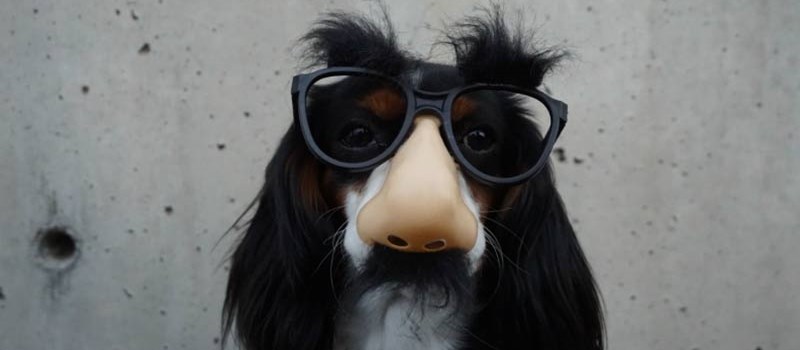
The English language is extremely interesting, complicated and often crazy! As a learner, it is understandable to sometimes feel overwhelmed by the countless phrases, sayings and guidelines that need to be followed in order to speak 'proper' English.
Now, to make things worse, here is a list of interesting, not very common but sometimes hilarious words that you can add to your vocabulary to really make an impression.
Canoodle
To kick off our list, we have canoodle. This term originated in the 19th century and is used to describe kissing or cuddling in a loving nature. Usually, this term is used to describe kissing and cuddling that happens in a public or otherwise inappropriate place.
Diddly-Squat
This informal term can be used to describe anything but is commonly used to mean a lower, if not non-existent, quantity of something. You can “have diddly-squat”, usually meaning you have nothing: no money, no possessions, or whatever the context designates. Often it is shortened to just “squat”.
Doohickey
An informal North American term used to describe a gadget or other small object, commonly when the person speaking has forgotten the actual name of the item in question. For example, if you have misplaced your USB stick, you may say 'I can't find my doohickey with my pictures on'.
Kerfuffle
This British word is used to describe a commotion or fuss, usually involving a conflict of some sort. E.g. “There was a bit of a kerfuffle at the bar”.
Dendrophilous
This term is one of my favourites on the list. It means to love trees so much that you want to, or do, live in one. This term can be used to describe a human, an animal or even a plant.
Sesamoid
Usually a term that refers to a bit of bone, muscle or cartilage in a human or animal that is shaped like a sesame seed. The term originated in Greek and Latin and was first recorded being used in 1690.
Cachinnate
This Latin/English term was used to describe an individual who laughed extremely loudly, above the average volume of laughter, deemed immoderate for the situation. This term is very rarely used today but was quite common in 1815.
Gash-gabbit
Originating in 1808, this unique Scots term is used to describe an individual who has an abnormally large, often protruding chin. Those with a gash-gabbit were sometimes even accused of being witches or hags.
Wallydrag
A term that could, in theory, be used as an insult but was normally used to describe the appearance of a small person, usually considered to be weak. This term was regularly used to refer to animals and people and originated around the beginning of the 1500s.
Hircine
This is quite possibly the most humorous item on the list. This term is used to describe a thing, often a person or individual, that resembles a goat. More so, the term was used to describe individuals who smelt of or had the odour of a goat. This could have been used as a descriptive term but also as an insult, depending on the context.
Impavid
This term is archaic and very rarely used today but was once used to describe individuals who were fearless in the face of danger.
Duende
This term is used to describe someone who is charming and magnetic, drawing people towards them, both in love and friendship.
Pogonotrophy
This old-English word encompasses all aspects related to growing a beard including; shaving, moisturising, cleaning, grooming and combing, to name a few. Despite how easily the word rolls off the tongue, this term is rarely used these days in modern language.
Factotum
If this word was still used commonly today, it would be perfect for describing an individual who works hard and takes part in many activities, or someone who has a lot of responsibilities. Alternatively this could be used to describe a 'lower' role individual, such as a servant.
Pandiculation
Everybody completes this activity at least once a day, normally more. It is the act of stretching out from a stiffened position, for example, stretching out your arms and legs after you have been asleep or sitting at a desk for a long time. This act occurs in most species of mammals, especially human beings!
Collop
Another one of my favourite funny English words, this term is used to describe a slice of meat or fish. Very rarely used these days, you could still use it in a butchers or next time you're buying some ham, but don't expect them to understand what you mean! As a jab, you can also use the term to describe a fold of skin or flab!
Batrachomyomachy
Saying this word is extremely close to the definition of this term: making a mountain out of a molehill, i.e. making a big deal out of something, much bigger than it needed to be in the first place.
Now that you know these hilarious and often confusing words, you can deploy them to baffle your friends and family or even just to expand your own vocabulary! Are you impavid enough to try?
Author Bio
Mary Walton is a professional writer at Academized. Also, she helps people create successful resumes at Resumention and land the jobs of their dreams. Mary has a blog - Simple Grad, find useful tips for students there.
